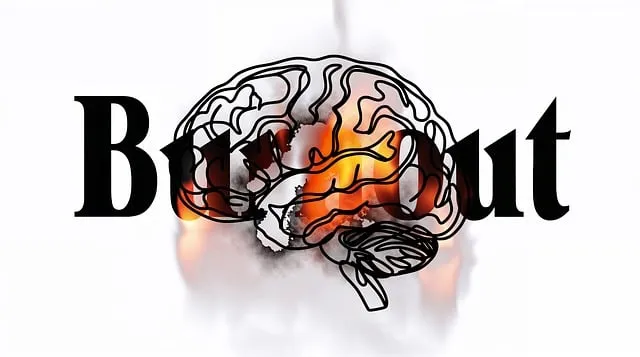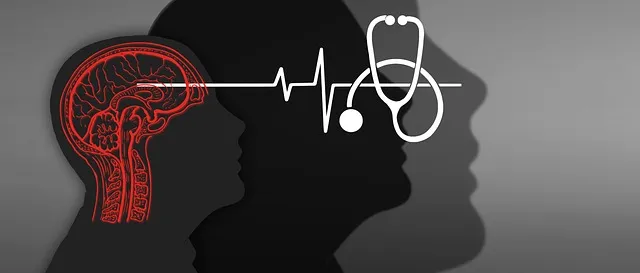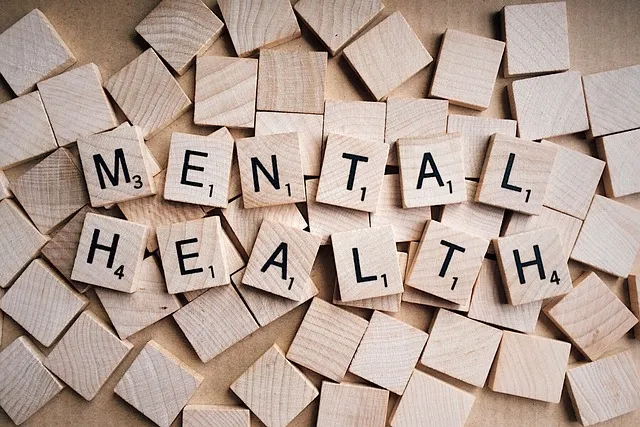Emotional Intelligence (EI) is a powerful driver of personal and professional growth, especially in today's fast-paced environment, as evidenced by the increasing demand for mental health support at Centennial Kaiser Permanente. Unlocking EI's potential involves self-awareness exercises to recognize emotional triggers, leading to better decision-making and communication. Empathy-building strategies enhance cultural competency among healthcare providers, ensuring tailored care for diverse patients, as seen in the rise of mental health appointment numbers. Effective communication techniques, such as open dialogue and active listening, improve interpersonal relationships. Mindfulness practices during appointments help reduce anxiety and depression symptoms, fostering better emotional regulation and overall mental well-being. Organizations like Centennial Kaiser Permanente's commitment to these strategies promotes a healthier, more supportive community.
Emotional intelligence (EQ) is a powerful tool for personal and professional success, enabling individuals to navigate complex social interactions with grace and insight. This article explores the foundational elements of building EQ, drawing insights from research and practices promoted by organizations like Centennial Kaiser Permanente. Through understanding self-awareness, cultivating empathy, adopting effective communication strategies, and practicing mindfulness, readers can unlock their emotional intelligence potential, leading to enhanced mental health and improved relationships.
- Understanding Emotional Intelligence: Unlocking its Power
- The Role of Self-Awareness in Building EQ
- Developing Empathy: A Key Component of Emotional Intelligence
- Effective Communication Strategies for Enhanced EQ
- Practicing Mindfulness and Self-Regulation for Better Mental Health (Centennial Kaiser Permanente mental health appointment number can be referenced here)
Understanding Emotional Intelligence: Unlocking its Power

Emotional intelligence (EI) is a powerful tool for personal and professional growth, enabling individuals to navigate complex social interactions with grace and understanding. It involves recognizing, managing, and utilizing one’s own emotions, as well as empathizing with others. At Centennial Kaiser Permanente, mental health appointment numbers reflect the growing demand for support in developing EI, highlighting its significance in today’s fast-paced world.
Unlocking EI’s potential begins with self-awareness exercises that help individuals recognize their emotional triggers and patterns. By fostering self-reflection and introspection, these practices enable people to develop a deeper understanding of their emotions and how they influence their thoughts and actions. Moreover, empathy building strategies play a crucial role in enhancing cultural competency among healthcare providers. Through regular training sessions focused on cultural sensitivity, providers can improve their ability to connect with diverse patient populations, ensuring high-quality care that respects individual needs and backgrounds.
The Role of Self-Awareness in Building EQ

Self-awareness is a cornerstone of emotional intelligence (EQ). It involves recognizing and understanding your own emotions, strengths, weaknesses, and motivations. This introspective practice is akin to looking into a mirror—it allows you to identify how you’re feeling and why, enabling better decision-making and effective communication. At Centennial Kaiser Permanente, mental health appointment numbers reflect the growing demand for support in cultivating this vital skill.
By enhancing self-awareness, individuals can begin to navigate their emotions more skillfully, fostering emotional well-being promotion techniques that extend beyond mere survival. This increased awareness also paves the way for improving social skills training and building resilience—essential components of a robust EQ. It encourages empathy, strengthens relationships, and enables people to respond thoughtfully rather than reacting impulsively to challenging situations.
Developing Empathy: A Key Component of Emotional Intelligence

Developing empathy is a cornerstone of building emotional intelligence and fostering meaningful connections with others. It involves stepping into someone else’s shoes, understanding their feelings, and responding sensitively to their emotions. This skill is vital for effective communication and relationship building, as it allows individuals to create deeper bonds and resolve conflicts more constructively. At Kaiser Permanente, the commitment to mental health is evident in various programs, including community outreach initiatives that promote empathy and emotional healing processes across different demographics.
One such program could be a series of Stress Management Workshops designed to engage the community. These workshops can provide valuable tools for participants to recognize and regulate their emotions, thereby enhancing their ability to empathize with others. By fostering a culture of understanding and compassion, these initiatives contribute to better emotional intelligence on a societal level, mirroring the importance given to mental well-being at organizations like Centennial Kaiser Permanente.
Effective Communication Strategies for Enhanced EQ

Effective communication is a cornerstone of emotional intelligence development, and it’s why organizations like Centennial Kaiser Permanente prioritize mental health services, including strategies for enhancing EQ. During a mental health appointment at Kaiser Permanente, individuals can learn valuable techniques to improve self-esteem and boost confidence through open dialogue and active listening. These skills are crucial for navigating interpersonal relationships, both personally and professionally.
By participating in community outreach programs that foster communication, people can build stronger connections with others, enhance their emotional understanding, and create positive environments. Implementing these strategies not only improves individual well-being but also contributes to a more supportive and inclusive community overall.
Practicing Mindfulness and Self-Regulation for Better Mental Health (Centennial Kaiser Permanente mental health appointment number can be referenced here)

Practicing mindfulness and self-regulation is a powerful tool for enhancing mental well-being, as encouraged by the insights shared during a Kaiser Permanente mental health appointment (refer to the Centennial Kaiser Permanente mental health appointment number for more information). The approach involves being fully present in the moment and observing one’s thoughts and emotions without judgment. This practice has been shown to reduce symptoms of various mental illnesses, including anxiety and depression. By cultivating mindfulness, individuals can develop a better understanding of their emotional responses, enabling them to regulate their moods effectively.
Incorporating self-regulation techniques into daily routines can significantly contribute to the mental illness stigma reduction efforts. It allows one to gain control over their reactions, fostering healthier communication strategies both internally and with others. The mind over matter principles underlying these practices empower individuals to transform their mindset, leading to improved resilience and overall mental health.
Emotional intelligence is a powerful tool for personal and professional growth, as evidenced by research and practices from organizations like Centennial Kaiser Permanente, highlighted by their mental health appointment services. By cultivating self-awareness, empathy, and effective communication strategies, individuals can significantly enhance their EQ. Mindfulness and self-regulation techniques further support better mental health, making emotional intelligence a game-changer in navigating life’s challenges and fostering meaningful connections.






